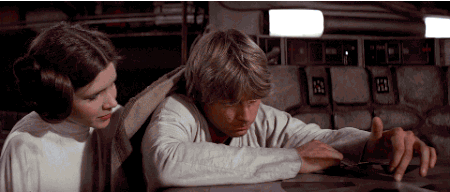
Creativity isn't something you have to have a special talent for. It is something that results from paying attention, following your own interests, and most of all, hard work. This is the gist of the message offered by Amy Burvall as she prefaces a list of 'Jedi mind tricks' to promote creativity (quoted and lightly edited (my own take in italics)):
- a sense of wonder.... is to be mindful of one's surroundings and all the things your senses are taking in (I get this from travel, the beauty of everyday life, from animals and from people).
- hone your skills of observation... be curious, stay in the question longer, take in different perspectives of things as well as people and processes (I use photography for this).
- challenge assumptions - learn the rules so you can break them - and don't take things at face value (not just rules - patterns, expectations, order and organizations...).
- the best way to complain is to make things - so after you've deconstructed or assessed something, it's important to move on (for me, making things usually means coding, though sometimes it means carpentry).
- an incubation period is also necessary - this is when you step away from the creative endeavor and chill out or do something mundane (for me, this is things like cycling)
- chefs of creativity must have a variety of tools at hand - it's important to achieve fluency with your creativity (and this requires practice with your tools, even for no purpose).
- being able to learn, unlearn, and re-learn anew will be imperative (just ask anyone who does web development).
- creativity inherently involves remix and connecting the dots - dot-connecting takes practice. It's a balance of curating ("dot collection"), finding, sense-making, and associating (this is the work I do with OLDaily, an essential part of my creative exercise).
- having a creative mentor is so important – even if it's not someone in your real life (these, to me, are the people who struggle with genuine enquiry - David Hume, John Stuart Mill, Ludwig Wittgenstein - and not those who simply see it as a game).
- while we don't want something to be overprescribed - we can thrive on conditions - rules - challenges (This isn't me so much - I don't like people telling me what to do, or not to do).
- creativity should be scheduled (OLDaily first thing in the morning at at 4:00 p.m., morning time for priority tasks, afternoon for routine, evenings and weekends for me).
- Focus will yield flow - Let all the extraneous stuff whiz by – at least for a little while – while you are intent (yes)
- it's key to have other, more tedious aspects of the creative task at hand that you can tackle when the big work is difficult (like doing email, reading the RSS feeds, some paperwork, cleaning and sorting).
- we want our work to touch people- We need people to work with us and spark us on – a creative posse (I've thought about this a lot - mostly I just need someone to tell me I've done good).
- if you are hating you are not creating (I need to work on this).
P.S. the list format here, which would work well on slides, is especially for Amy. :) Via Doug Belshaw, who also recommends this Tilt Brush video. See also Amy Burvall, Everybody is an Artist.
Today: 0 Total: 431 [] [Share]




